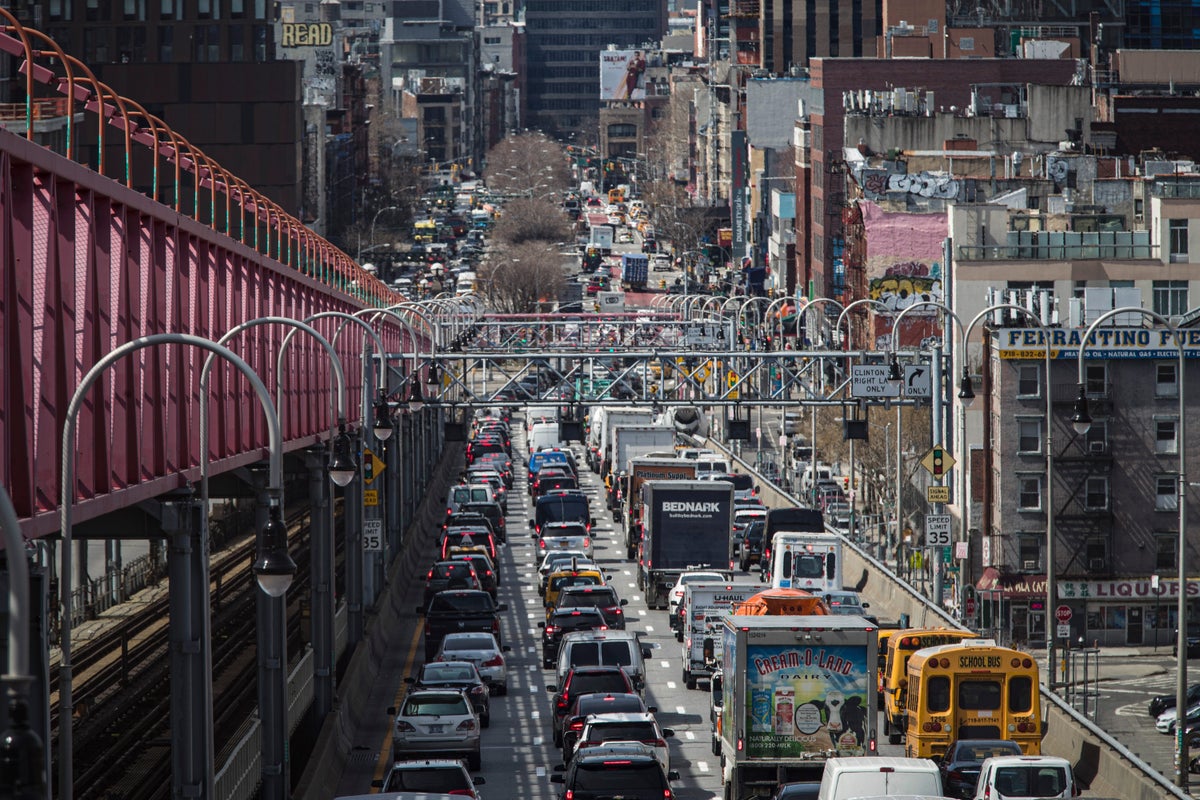
New York is inching toward becoming the first U.S. city to charge motorists an extra fee for entering its most congested areas.
The Metropolitan Transportation Authority said Wednesday a long-delayed environmental assessment should be released by federal regulators next month, to be followed by public hearings. The MTA also named the members of a board that will decide the plan’s pricing, discounts and exemptions.
The practice is commonly referred to as congestion pricing and has been used in cities including London, Singapore and Stockholm. In New York, motorists entering Manhattan below 60th Street would be charged a toll electronically. The revenue, estimated at $1 billion annually, would be used to back borrowing for capital improvements to the MTA’s subway and bus systems.
While ridership on New York's subways has rebounded slowly from the COVID-19 pandemic and currently hovers around 60% of pre-pandemic levels, vehicle traffic at bridges and tunnels began to return to normal levels last year.
The tolls aren’t expected to be implemented until late next year at the earliest. New York’s Legislature approved a conceptual plan for congestion pricing in 2019 and it was initially projected to be in place in 2021. But the pandemic and a lack of guidance from federal regulators on the type of environmental review that was required combined to stall the project. That guidance was provided last year.
The MTA will hold a series of hearings at the end of next month to collect feedback. After that, the Federal Highway Administration must issue a final approval to the environmental plan before the project can go forward.
Some lawmakers in New Jersey have said the plan is unfair because motorists already pay tolls at bridges and tunnels to enter New York, and the money from congestion pricing won't be used to improve public transit in New Jersey. Some motorists paying tolls to enter Manhattan from New Jersey are expected to receive discounts or be exempt.






